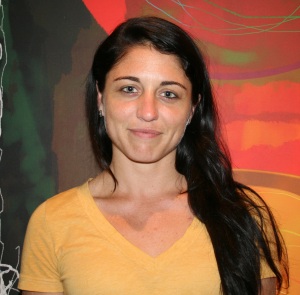DreamSF Fellow tells us about his time at OneJustice and his experience as a DACA recipient.
We’re excited to have Miguel, our DreamSF Fellow and Communications Intern, give us an inside view on his current work and his goals for the future before he leaves OneJustice. We have been so fortunate to have had Miguel on the OneJustice Team, and he will be sorely missed! So before he leaves, we wanted to pick his brain one last time!
Join us in bidding Miguel a heartfelt farewell!
Thank you so much, Miguel, for joining us for this quick Q&A! Tell us about your work at OneJustice, why did you choose OneJustice as your host site?
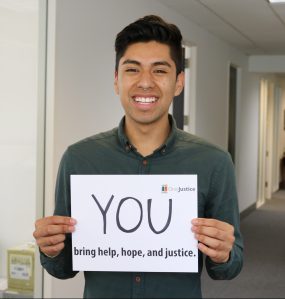
Miguel Castillo, DreamSF Fellow and Communications Intern at OneJustice.
For my DreamSF Fellowship, I chose to work for OneJustice, because I believe in the work and the change OneJustice is so bold to take on. Since September of 2015, I have helped out the Pro Bono Justice Program (PBJ) and the Development and Communications team. For the PBJ program, I helped with outreach for upcoming Justice Bus Project and Rural Justice Collaborative clinics and clinic logistics like, signing up clients, making sure they have the right paperwork for the clinic, and translating legal documents into Spanish. During clinics, I would help greet and sit clients down with a pro bono volunteer as well as interpret in Spanish for clients.
In my role with the Development and Communications team, I used my graphic design skills to help with the creation of the upcoming new website and interactive clinic map, plus I designed flyers and a brochure for OneJustice. In addition, I would take professional pictures at clinics for communication purposes and would help with social media.
We’re so grateful to have had a Fellow like you — you’ve been a crucial part of our team over the past months! Can you explain to folks what the DreamSF Fellowship is? How has it helped you with your career goals?
The DreamSF Fellowship is a paid internship exclusively for DACA (Deferred Action for Childhood Arrivals) recipients. Fellows get placed at a nonprofit organization in San Francisco serving the immigrant community. By training and preparing DACA recipients, the DreamSF Fellowship serves as a gateway to the professional workforce. It has provided me with professional work experience and skills that will help me with my career goals. It has also given me a wide network of people that I can reach out to and count on. The Fellowship has given me hope that I can succeed in a world that is not always welcoming. It is important that programs like the DreamSF Fellowship continue to serve and empower underprivileged communities and provide opportunities to youth.
It definitely sounds like Fellowships such as the DreamSF Fellowship are opening doors for individuals! Tell us how DACA has helped you on your journey towards achieving your goals.
I immigrated to the United States when I was three years old and grew up in Santa Barbara, CA. My family decided to come to the US due to economic hardship and lack of opportunity in their home country. Before DACA, I was limited and barred from most opportunities that people would not think twice about. For example, DACA allowed me to get an Identification Card, a Driver’s License, and allowed me to obtain a job — all things that most people my age have access to. If I could summarize DACA with one word, it would be opportunity. It has allowed me to travel, go to college, and feel somewhat normal in society. I now have more control over my life and where I would like to go and who I would like to become.
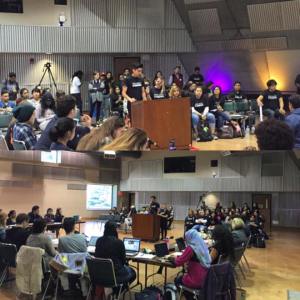
Miguel presenting a proposal for the creation of an Undocumented/AB540 Student Resource Center to the Board of Associated Students at San Francisco State University.
Although DACA is an amazing opportunity and achievement, it is not enough. Families are still getting torn apart and getting abused and taken advantage of in the workforce. Due to my immigration status, I have become a big activist in my community for Immigrant rights. As a result of my activism and advocacy for immigrants, I have been at the forefront of establishing an Undocumented/AB540 Student Resource Center at San Francisco State University. The Resource Center will provide resources to over 650 students at the University who identify as Undocumented or AB540. Currently, there is a resource gap that undocumented students face while at school. This population of students do not have access to Federal Student Aid, loans, and most scholarships, and do not have access to a central location where they can receive help with resources they do qualify for. The creation of this resource at San Francisco State University is one of my biggest dreams and goals.
Sounds like great work ahead — we can’t wait to hear about what you do in the near future! How would you say free legal services have helped DACA applicants?
Legal forms and the English language can be obstacles for DACA-eligible people, but free legal services help this specific population with their applications, giving them access to new opportunities. With this new eligibility, DACA recipients can join the workforce and contribute to society, proving how the country can benefit from immigrants. I believe DACA will play in important role in immigration, because it is the start of something bigger, like immigration reform.
We couldn’t agree more on the importance of programs like DACA and DAPA, and we are grateful for our partners, supporters, and volunteers for bringing justice to those who need it most.
Thank you so much for joining us today, Miguel! We will miss you! We know you will achieve everything you’ve set your mind to!
To keep updated on Miguel’s current endeavors and projects, follow him on Behance, Instagram, and LinkedIn.
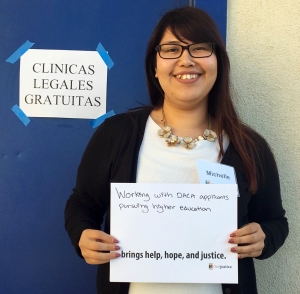 2015 Pro Bono Innovations with Impact:
2015 Pro Bono Innovations with Impact: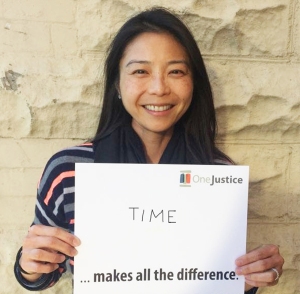
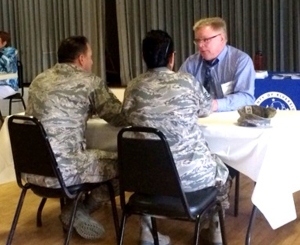
 By: Katie Aragon, Silicon Valley Director of
By: Katie Aragon, Silicon Valley Director of 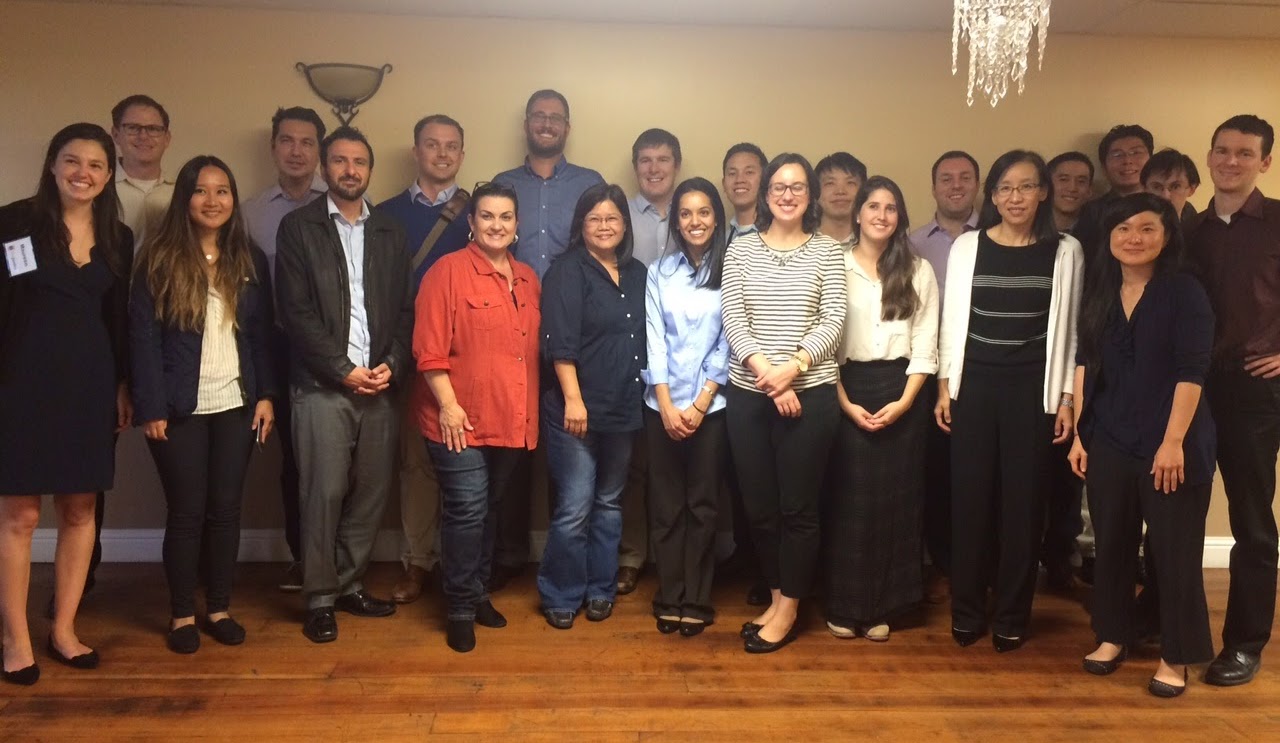
![[Photo: Hollister-CA]](https://onejusticeblog.files.wordpress.com/2015/09/hollister-ca.jpg?w=300)
![[Photo: Lowenstein Sandler LLP attorney volunteers assist a client with citizenship matters at the July 2014 clinic.]](https://onejusticeblog.files.wordpress.com/2015/09/photo-3-9.jpg?w=300)
